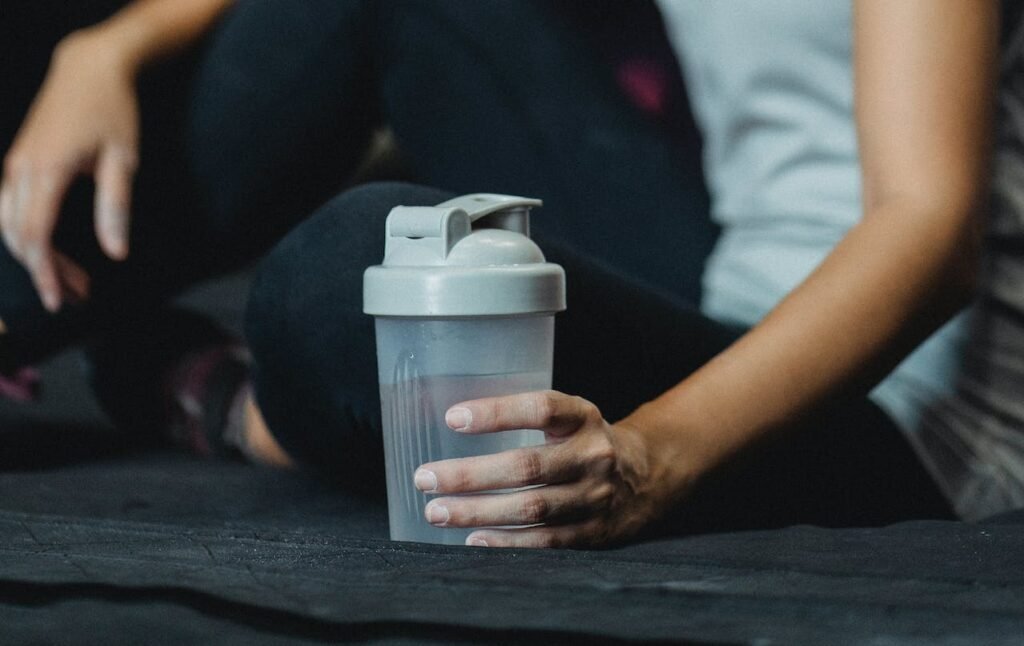Post-Workout Recovery isn’t just a buzzword in the fitness community; it’s the cornerstone of any successful training program. After pushing your body to its limits, recovery is crucial for muscle repair, strength building, and performance enhancement. Ignoring it can lead to burnout, injuries, and stalled progress. But when done right, it ensures you’re getting the most out of every workout.
| Heading | Description |
|---|---|
| Post-Workout Recovery: Why It Matters for Your Fitness Goals | Explores the significance of recovery in achieving fitness goals, highlighting its role in muscle repair, strength building, and overall workout effectiveness. |
| Understanding the Science Behind Post-Workout Recovery | Delves into the physiological processes of recovery, explaining how exercise-induced damage triggers repair mechanisms and the role of various body systems in this process. |
| The Role of Nutrition in Effective Post-Workout Recovery | Discusses the importance of nutrition, focusing on the balance of proteins, carbohydrates, and fats for optimal recovery and muscle growth. |
| Sleep and Rest: Critical Components of Post-Workout Recovery | Emphasizes the crucial role of sleep and rest in the recovery process, highlighting the release of growth hormone during sleep and the necessity of rest days. |
| Active Recovery vs. Passive Recovery: What’s Best After a Workout? | Compares and contrasts active and passive recovery methods, explaining how both play a role in the recovery process and the importance of listening to the body. |
| Hydration and Post-Workout Recovery: Connecting the Drops | Explores the connection between hydration and recovery, detailing the impact of fluid and electrolyte loss during exercise and providing guidelines for effective rehydration. |
| Stretching and Mobility Exercises for Enhanced Post-Workout Recovery | Discusses the benefits of stretching and mobility exercises post-workout, covering various techniques like static and dynamic stretching and the use of foam rollers. |
| The Impact of Mental Health on Post-Workout Recovery | Highlights the often overlooked aspect of mental well-being in recovery, exploring activities such as meditation and deep breathing exercises to support mental health. |
| Supplements and Post-Workout Recovery: What Works? | Provides insights into the role of supplements in recovery, mentioning popular choices like protein powders, BCAAs, and creatine, with a note on the importance of research. |
| Customizing Your Post-Workout Recovery Plan for Different Types of Exercise | Advises on tailoring recovery strategies based on the type of exercise, considering the unique demands of strength training, endurance sports, and other workout variations. |
| Measuring and Tracking Your Post-Workout Recovery Progress | Discusses the importance of monitoring recovery progress, including metrics like heart rate variability (HRV), sleep quality, and muscle soreness levels, using modern tracking tools. |
| Common Mistakes to Avoid in Post-Workout Recovery | Identifies common mistakes in recovery, such as neglecting rest days and inadequate nutrition, emphasizing the importance of avoiding overtraining for sustained progress. |
| Age and Fitness Level: Adapting Your Post-Workout Recovery | Advises on adapting recovery strategies based on age and fitness level, acknowledging the changing needs of older adults and beginners in their fitness journeys. |
| The Long-term Benefits of Consistent Post-Workout Recovery Practices | Explores the enduring benefits of consistent recovery practices, including reduced injury risk, improved physical performance, enhanced mental well-being, and overall health. |
| Innovative Technologies and Tools for Enhancing Post-Workout Recovery | Looks into the latest technologies and tools designed to enhance recovery, mentioning smart wearables, recovery-specific supplements, and other innovations in the fitness landscape. |
- Understanding the Science Behind Post-Workout Recovery
- The Role of Nutrition in Effective Post-Workout Recovery
- Sleep and Rest: Critical Components of Post-Workout Recovery
- Active Recovery vs. Passive Recovery: What's Best After a Workout?
- Hydration and Post-Workout Recovery: Connecting the Drops
- Stretching and Mobility Exercises for Enhanced Post-Workout Recovery
- The Impact of Mental Health on Post-Workout Recovery
- Supplements and Post-Workout Recovery: What Works?
- Customizing Your Post-Workout Recovery Plan for Different Types of Exercise
- Measuring and Tracking Your Post-Workout Recovery Progress
- Common Mistakes to Avoid in Post-Workout Recovery
- Age and Fitness Level: Adapting Your Post-Workout Recovery as You Evolve
- The Long-term Benefits of Consistent Post-Workout Recovery Practices
- Innovative Technologies and Tools for Enhancing Post-Workout Recovery
- Final Thoughts:
- FAQs:
Understanding the Science Behind Post-Workout Recovery
Recovery starts the moment you finish your last rep. Here’s what happens: during exercise, muscles undergo microscopic damage, triggering inflammation and signaling the body to start repairing. This process involves various physiological systems – from the synthesis of proteins to hormonal responses. Optimal recovery means providing your body with the right conditions to facilitate these processes. This includes adequate nutrition, rest, hydration, and sometimes, active recovery methods.
The Role of Nutrition in Effective Post-Workout Recovery
Nutrition plays a pivotal role in recovery. The right balance of macronutrients – proteins, carbohydrates, and fats – is essential. Proteins are the building blocks of muscle repair. A post-workout protein intake of 20-40 grams is recommended. Carbohydrates replenish glycogen stores, with a ratio of 3:1 carbs to protein often suggested. Fats shouldn’t be ignored either, as they play a part in hormone production, which in turn influences recovery.
Sleep and Rest: Critical Components of Post-Workout Recovery
Never underestimate the power of good sleep and rest. During sleep, the body releases growth hormone, crucial for muscle repair and growth. Adults should aim for 7-9 hours of quality sleep per night. Rest days are equally important. They allow muscles to repair and strengthen. Depending on the intensity of your workouts, scheduling 1-2 rest days per week is generally a good practice.
Active Recovery vs. Passive Recovery: What’s Best After a Workout?
Active recovery involves low-intensity exercise, like walking or gentle yoga, while passive recovery involves complete rest. Both have their place. Active recovery can enhance blood flow, aiding in nutrient delivery and waste removal from muscles. However, it’s vital to listen to your body. If you’re feeling particularly worn out, opting for passive recovery might be more beneficial.
Hydration and Post-Workout Recovery: Connecting the Drops
Hydration is a key player in Post-Workout Recovery. It’s not just about quenching thirst; it’s about replenishing what’s lost during a workout. Sweating leads to fluid and electrolyte loss, which can impair muscle recovery and performance. The general guideline is to drink 16-24 ounces of fluid for every pound lost during exercise. Including electrolytes, like sodium and potassium, can further aid in rehydration and prevent cramping.
Stretching and Mobility Exercises for Enhanced Post-Workout Recovery
Incorporating stretching and mobility exercises post-workout can significantly improve recovery. These practices help maintain flexibility, reduce muscle tension, and increase blood circulation to tired muscles. Techniques like static stretching, dynamic stretching, and using foam rollers can be highly effective. Aim for at least 10 minutes of stretching focusing on major muscle groups used during your workout.
The Impact of Mental Health on Post-Workout Recovery
Mental health is an often overlooked aspect of Post-Workout Recovery. Stress and anxiety can hinder the body’s ability to recover efficiently. Activities like meditation, deep breathing exercises, or simply engaging in a relaxing hobby can promote mental well-being, which in turn, positively impacts physical recovery. Remember, a sound mind contributes to a sound body.
Supplements and Post-Workout Recovery: What Works?
Navigating the world of supplements can be daunting. While they are not substitutes for a balanced diet, certain supplements can enhance recovery. Protein powders, BCAAs (Branched-Chain Amino Acids), and creatine are popular choices. Omega-3 fatty acids and Vitamin D can also support muscle recovery. However, it’s important to research and possibly consult a health professional before adding supplements to your regimen.
Customizing Your Post-Workout Recovery Plan for Different Types of Exercise
Different types of exercise require varied recovery strategies. For strength training, focus might be more on protein intake and muscle repair. For endurance sports like running or cycling, replenishing glycogen stores and hydration takes precedence. Listen to your body and adjust your recovery techniques based on the intensity and nature of your workout for optimal results
Measuring and Tracking Your Post-Workout Recovery Progress
To ensure optimal Post-Workout Recovery, it’s important to measure and track your progress. This can include monitoring your heart rate variability (HRV), keeping a sleep diary, or noting muscle soreness levels. Modern fitness trackers and apps can provide valuable data on these aspects. Regularly assessing these metrics helps in fine-tuning your recovery strategies and avoiding overtraining.
Common Mistakes to Avoid in Post-Workout Recovery
One of the biggest mistakes in Post-Workout Recovery is neglecting rest days. Overtraining can lead to fatigue, decreased performance, and injury risk. Another common error is inadequate nutrition, particularly under-consuming protein or overall calories, which can hinder muscle repair. Also, neglecting hydration and proper sleep can drastically impede recovery efforts.
Age and Fitness Level: Adapting Your Post-Workout Recovery as You Evolve
As you age or as your fitness level changes, so should your recovery strategies. Older adults may require more time for muscle recovery and should focus on gentle mobility exercises and adequate protein intake. Beginners should prioritize mastering proper form and gradually increasing intensity, along with a balanced approach to recovery. Listening to your body and adjusting accordingly is key at any age or fitness stage.
The Long-term Benefits of Consistent Post-Workout Recovery Practices
Consistent Post-Workout Recovery practices offer numerous long-term benefits. These include reduced risk of injury, improved physical performance, and enhanced overall health. Recovery practices also contribute to better sleep quality and mental well-being. In the long run, these benefits translate into a sustainable and enjoyable fitness journey.
Innovative Technologies and Tools for Enhancing Post-Workout Recovery
The fitness world is continuously evolving with new technologies and tools designed to enhance Post-Workout Recovery. These range from smart wearables that track recovery metrics to advanced foam rollers with vibration therapy. Recovery-specific supplements and nutrition products are also on the rise. Embracing these innovations can add a cutting-edge element to your recovery process, making it more effective and enjoyable.
Final Thoughts:
Post-Workout Recovery emerges as the unsung hero in the realm of fitness, holding the key to unlocking sustained progress. Through our journey, we’ve delved into the intricate science governing recovery, the pivotal role of nutrition, the significance of rest, and the impact of mental well-being. We’ve explored tailored strategies for different types of exercise, dissected common pitfalls to avoid, and embraced the idea that recovery evolves with age and fitness level. Recognizing the long-term benefits of consistent recovery practices, we’ve also glimpsed into the future with innovative technologies. As you embark on your fitness endeavors, remember: the true magic happens not just in the workout but in the intentional, holistic approach to Post-Workout Recovery. It’s time to recover smarter, perform better, and relish the enduring rewards of a well-balanced fitness journey.
FAQs:
1. Why is post-workout recovery important?
Post-workout recovery is vital for muscle repair, strength building, and overall performance improvement. It prevents burnout, reduces the risk of injuries, and ensures that your body is ready for the next workout.
2. How soon should I focus on post-workout recovery after exercising?
The sooner, the better. The first 30 minutes to an hour after exercise is considered a crucial window for optimal nutrient intake to support recovery. However, overall recovery practices should continue in the hours and days following a workout.
3. What should I eat after a workout for effective recovery?
A balanced post-workout meal should include a mix of protein, carbohydrates, and healthy fats. Proteins aid in muscle repair, carbohydrates replenish glycogen stores, and fats contribute to hormone production.
4. Is passive or active recovery better after a workout?
Both have their merits. Active recovery, like light exercise, can enhance blood flow and nutrient delivery. However, it’s essential to listen to your body. If fatigued, opting for passive recovery with complete rest might be more beneficial.
5. Can post-workout recovery help with mental well-being?
Absolutely. Physical and mental health are interconnected. Engaging in activities like meditation or deep breathing exercises post-workout can positively impact mental well-being, contributing to an overall sense of balance.
6. Are supplements necessary for post-workout recovery?
While a balanced diet is crucial, certain supplements can enhance recovery. Protein powders, BCAAs, and creatine are common choices. It’s advisable to consult with a health professional before adding supplements to your regimen.
7. How do I adapt post-workout recovery as I age or change my fitness level?
As you age or modify your fitness routine, recovery strategies should adapt accordingly. Older adults may need more recovery time, while beginners should focus on gradual intensity increases and proper form.
8. How can I measure my post-workout recovery progress?
Monitoring metrics like heart rate variability (HRV), sleep quality, and muscle soreness levels can provide insights into your recovery progress. Fitness trackers and apps can be valuable tools for tracking these metrics.
9. Are there any long-term benefits to consistent post-workout recovery practices?
Absolutely. Consistent post-workout recovery practices lead to reduced injury risk, improved physical performance, enhanced overall health, and better sleep quality. The long-term benefits contribute to a sustainable and enjoyable fitness journey.
10. What role do innovative technologies play in post-workout recovery?
Innovative technologies, such as smart wearables and recovery-specific tools, can provide real-time data and enhance the effectiveness of post-workout recovery. Embracing these innovations can add a modern and efficient dimension to your recovery process.



